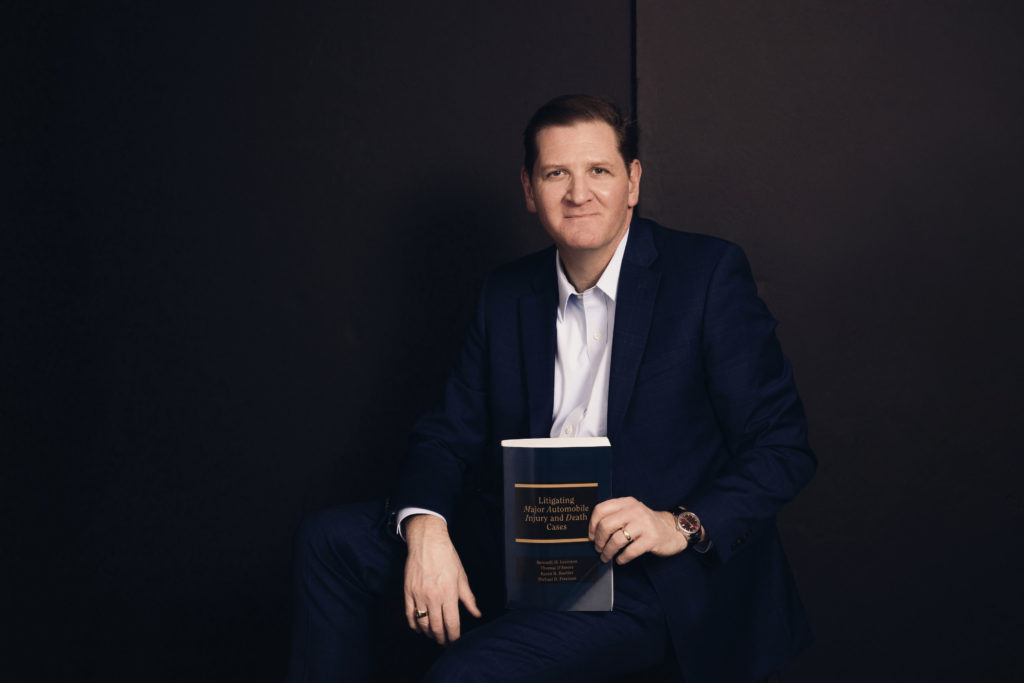The 2021 to 2022 Edition of Litigating Major Automobile Injury and Death Cases, written by Levinson and Stefani’s own Ken Levinson along with Tom D’Amore, has some new updates in its latest version.
The two-volume series, which aims to offer legal and scientific insight regarding how best to prepare auto injury cases for the best possible awards, has some updated materials in Chapter 1, “The Importance of Law Firm Marketing.” This chapter covers how best to build your firm brand using internet marketing, organic and local SEO, and Google search result rankings, as well as how to use social media and email marketing to your advantage.
“This series is designed to provide plaintiff attorneys with clear guidance on representing major automobile injury and death cases, and strategies for winning large damage awards with the least expenditure of effort,” explained Levinson.
Additionally, Chapter 8–Depositions–is revised to look further into how to boost remote deposition success when so many depositions are now held over Zoom following the pandemic. Specifically, this chapter covers how to allow all participants to see exhibits and witnesses as clearly as possible, how to maximize your video and audio quality, and as how to minimize background or technical difficulty disturbances.
“Our objective is to help attorneys achieve maximum damage awards on behalf of their severely injured clients,” said Levinson. “The series features written discovery, depositions, medical, and other expert witness testimony, and aspects of automobile jury trials–as well as the necessary forms needed to handle a case from beginning to end.”
The series, published Thomson Reuters, is available here.


